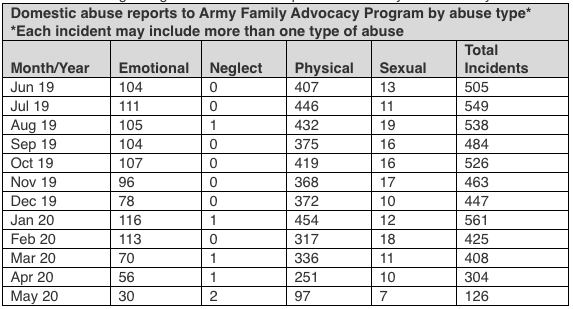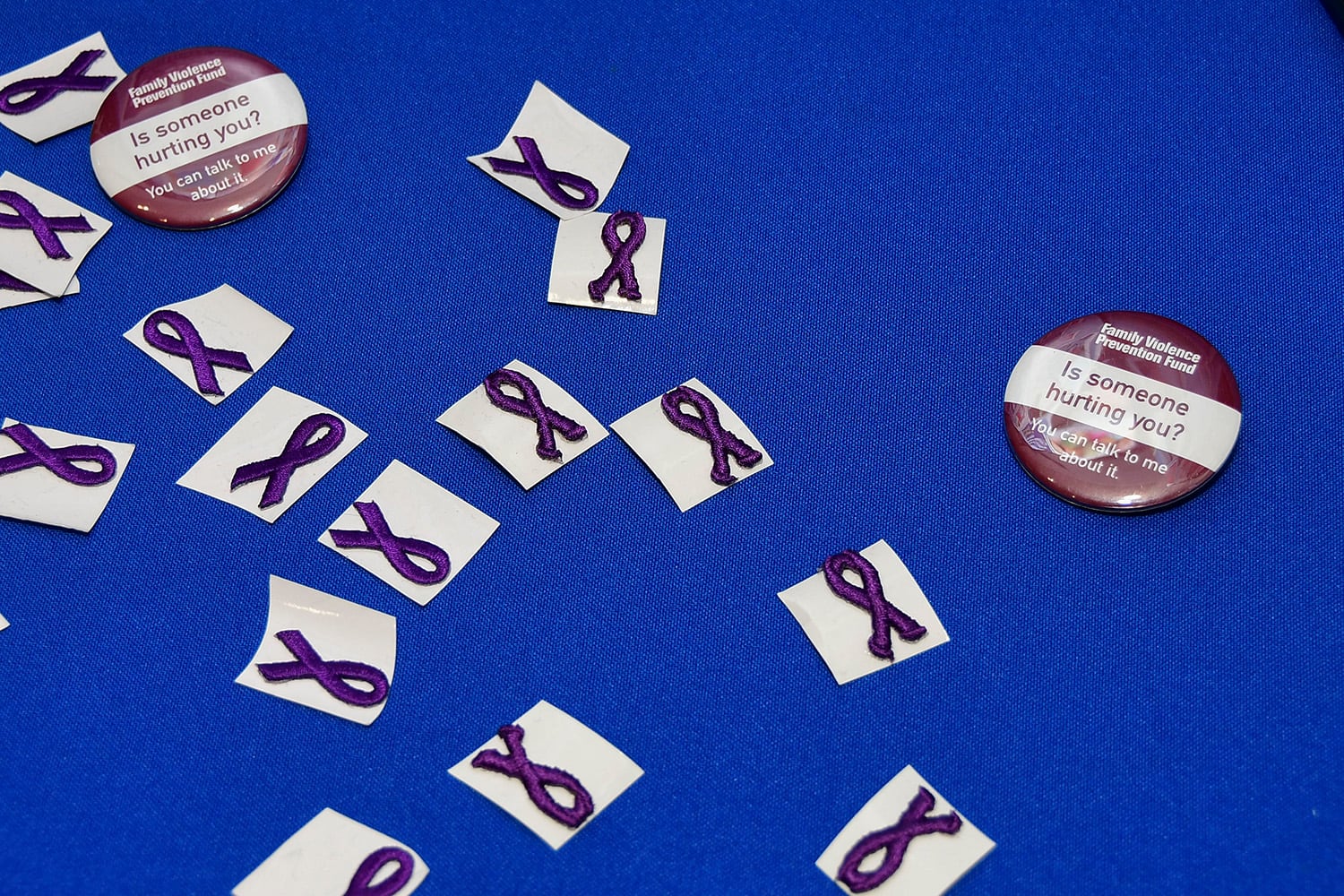Data maintained by the Army shows a significant drop in reported incidents of domestic abuse during the months of March, April and May, when the coronavirus pandemic forced many people to shelter in their homes to limit viral spread.
There were 126 total domestic abuse incidents reported in May, compared to a high of 561 incidents reported in January. The months of April and March had the second and third lowest rates of reported incidents in the past year, as well.
Army officials cited their own preparation as a possible reason for the downturn, saying they were aware that domestic abuse rates were expected to climb in U.S. cities and abroad during the pandemic. The service prepared for the shelter-in-place orders by encouraging commanders to engage soldiers and provide information on resources to help troops cope.
Others are skeptical that the numbers reflect an actual decrease, however.
The drop could simply reflect people’s inability to report abuse to the Army Family Advocacy Program, which tracks domestic abuse and child neglect, according to some victim advocates.
“My experience with domestic violence is that isolation is one thing that drives silence,” said retired Col. Don Christensen, a former chief Air Force prosecutor and now president of the non-profit military advocacy group Protect Our Defenders. “I’m guessing it’s just not getting reported.”

Christensen added that domestic abuse in general is “vastly underreported,” and he framed the Army’s reported instances of it as just “the tip of the iceberg.”
The pandemic has also added new stressors to people’s lives, which historically increase rates of abuse, Christensen said.
Kids have been pulled out of school and spouses are spending more time together, potentially after suffering a layoff or furlough, Christensen noted. If one spouse suffered a job loss as the economy entered a downturn, that may increase the financial stress for military families that planned their finances around being dual-income.
In total, the Army Family Advocacy Program received 3,260 reports of abuse between October 2019, the start of the fiscal year, and May 2020. That’s a roughly 20 percent decrease from the same timeframe the year prior, according to Army spokeswoman Ellen C. Lovett.
Most of the decrease occurred during the quarantine months, but Lovett said that there have been fewer reports across the entire fiscal year. During quarantine, commanders regularly held Facebook Live “town halls” to field questions from soldiers and their families, as well as encouraged troops to use virtual healthcare and 24/7 victim advocacy programs if needed, Lovett added.
But even as the Army launched virtual solutions, more traditional victim advocacy resources across the country were still curtailed during the pandemic.
The National Domestic Violence Hotline now warns on its website that there has been limited shelter availability due to COVID-19 concerns. The organization advised victims to consider alternatives like staying with family or friends, motels or even sleeping in their vehicle.

Northeastern University Law School, which started a virtual legal clinic for domestic abuse victims during the lockdown, stated that shelters in the Boston region had to turn people away.
Northeastern’s Domestic Violence Clinic observed a 66 percent drop in cases between the spring of 2019 and 2020. Like the Army’s own data, that sounds like good news at first.
But what was likely happening, according to Margo Lindauer, director of Northeastern’s legal clinic, was that victims were stuck at home and couldn’t report their abuse, contact legal advisers or alert social services.
“In times of crisis, whatever crisis that is, domestic violence goes up,” Lindauer said on Northeastern’s website. “With COVID, everyone was seeing rates going down, and we knew that wasn’t indicative of what was actually going on.”
Similarly, Christensen, Protect Our Defenders president, remained skeptical that shelter-in-place orders had actually resulted in a dramatic drop in instances of domestic abuse in the military. He called the Army’s reported decrease “counter-intuitive.”
“It’d be great if it’s true. But I’d hope [the Army] understands that fewer people are likely reporting,” Christensen said. “I would hope that the Army doesn’t become complacent because of these numbers.”
Kyle Rempfer was an editor and reporter who has covered combat operations, criminal cases, foreign military assistance and training accidents. Before entering journalism, Kyle served in U.S. Air Force Special Tactics and deployed in 2014 to Paktika Province, Afghanistan, and Baghdad, Iraq.





